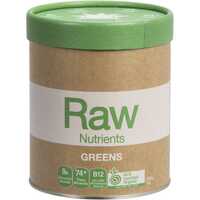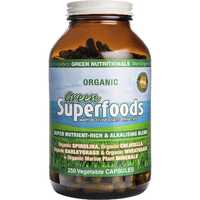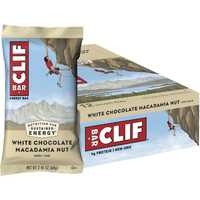Modern people are increasingly adopting functional health practices. Inspired by sustainable exercise routines, we are looking for new and creative ways to get more energy and live better lives. Functional fitness is a specific type of training focused on the activities of daily living, and functional nutrition is about fuelling these activities through food.
Instead of trying to meet arbitrary strength and endurance goals, a functional approach to health is about meeting the challenges of real life. From bending and stretching to pushing, pulling, and lifting, the functional movements of daily life can be enabled and enhanced through nutrition and lifestyle management.
What is Functional Fitness?
Before we analyse functional nutrition, it's important to look at functional fitness. Also known as functional training, this relatively new field has its origins in rehabilitation and physical therapy. This type of training is designed for life and tailored to the needs of the individual. It swaps intensity and repetition for progressive and balanced routines that aim to avoid injuries and improve real-life outcomes.
Over the years, the fitness industry has become increasingly focused on image. Fuelled by social media and professional sports, fitness enthusiasts develop unrealistic and often unhealthy expectations. Whether it's unsustainable weight loss, impossible muscle gains, or endurance programs designed for full-time athletes, the world of fitness has become increasingly divorced from everyday life.
As an alternative, the following elements define a functional approach to fitness:
- Practical everyday tasks
- Individual fitness programs
- Integrated physical movements
- Progressive exercise plans
- Variation and flexibility
- Manipulation of real objects
- Use of real environments
The human body can only perform seven basic movements: pull, push, squat, lunge, hinge, rotate, and gait. Functional fitness provides endless variations of these movements, which are combined in different ways to boost flexibility, agility, endurance, and real-world strength.
Why Nutrition is Central to Physical Function
Exercise and nutrition are the twin foundations of good health, and they're completely interdependent. The foods we eat have a huge effect on our energy levels, and how we move influences our appetite throughout the day. Functional nutrition is about making healthy diet choices in order to improve physical function. Depending on who you are and what you want, this may involve eating more, eating less, or consuming specific nutritional supplements.
There is no precise definition of functional nutrition, as it involves a personal approach to eating. Functional nutrition is based on universal health principles, but it also takes individual physiological and lifestyle factors into consideration. For example, specific food allergies, mental health problems, and physical injuries may influence your food intake.
Functional nutrition is about eating the right foods so you can function better in life and improve health outcomes as you age. Like many things in health, a functional approach to nutrition is about listening to your body, seeking balance, and making adjustments where necessary. To do this effectively, it's important to have a basic understanding of nutrients and how they affect your body.
Finding the Ideal Balance of Macronutrients
Macronutrients are the primary food classes that define every diet. As human beings, we must consume large amounts of three chemical compounds in order to live and thrive on planet Earth: carbohydrates, proteins, and fats. While we also require vitamins, minerals, and other micronutrients, these three groups give us energy and keep us alive. In a very real way, macronutrients are the most basic of all functional foods.
Carbohydrates
Also known as carbs, carbohydrates are the body's primary fuel source. They provide us with energy for movement and exercise, help our muscles to heal and grow, and allow our central nervous system to function. Between 45% and 65% of your daily calorie intake comes from carbs, so it's important to eat enough every day. While carbohydrates can be consumed at any time of day, eating them before activity does provide a prolonged source of energy. Good carbohydrates include fruits, vegetables, whole grains, lentils, beans, and dairy foods.
Proteins
Proteins also provide functional benefits throughout your body. They help to build muscle, aid the recovery process, and balance key metabolic, hormonal, and enzyme systems. Protein is the building block of life, and it gives structure to tissues throughout your body. Protein-rich meals are particularly beneficial following a workout, with lean meats and plant proteins having maximum muscle-building effect up to two hours after activity. Great sources of protein include meat, fish, and dairy products; lentils and beans; whole grains; and nuts and seeds.
Fats
As the third component of the macronutrient trinity, fats play a vital role in how your body functions. Among other things, they provide an important energy reserve, insulate and protect your organs, and enable the transportation of vitamins. One-quarter to one-third of your daily calorie intake comes from fats, including saturated and unsaturated fats. Saturated fats should make up less than 10% of your calorie intake, with the rest hopefully coming from omega-3 fats and other healthy fats present in avocados, olive oil, nuts, seeds, and fish.
What About Micronutrients?
A functional approach to nutrition doesn't end with macronutrients. While carbs, protein, and fats are responsible for most of your calorie intake, many other ingredients are needed to energise your body and maximise your health. These micronutrients include a number of vitamins and minerals, most of which need to come from food.
- Vitamins are organic compounds that are created by plants and animals and are capable of being broken down. Vitamins are necessary for the production of energy, and they're also used for immune function, blood clotting, and many other functions.
- Minerals are inorganic compounds that are found in water and soil and can't be broken down. Minerals play an important role in growth and healing, and they're also used for bone health, fluid balance, and numerous other physical functions.
Nutrition Tips for Everyday Life
A functional approach to nutrition starts and ends with everyday life. Much like functional fitness, it's about meeting the needs of your lifestyle by prioritising issues of balance, timing, and sustainability. More than just eating healthy foods, functional nutrition is about engaging with your diet and setting up healthy eating patterns over time.
The following tips are a great place to start:
Stay hydrated
Water is essential to all living organisms, which makes it the ideal functional substance. It's important to drink enough water throughout the day, especially when you're involved with physical exercise. Consume small amounts of water on a regular basis, take a bottle with you so you don't forget, and learn to love the taste of pure H2O. While fruit juices can also be healthy, it's essential to watch your sugar intake, natural or otherwise.
Balance your calorie intake
If you live an active modern lifestyle, you need a calorie intake to match. Calories themselves aren't bad for you as long as you burn them through physical and mental exercise. Once again, it's all about balance. Be willing to eat more when you work out, and don't be afraid to change your diet based on the demands of your lifestyle. Less than 10% of your calories each day should come from saturated fats, and less than 10% should come from added sugars.
Think about timing
Much like fitness, a functional approach to nutrition involves setting up habits over time. While there is no "best" eating pattern, timing plays an important role in how your body utilises food. For example, intermittent fasting and small regular meals both alter metabolism and influence weight loss, but people are impacted in different ways. When you eat also affects your energy production, with carbs creating immediate energy, protein offering structural gains, and fats providing slow release. However, fats offer 9 calories per gram, which is more than double that of carbs or protein.
Consume a balanced diet
Eating a balanced diet is about consuming the right amounts of macro and micronutrients. To do this effectively, it's important to eat various foods across all food groups. From fruits and vegetables to grains, protein, and dairy, each food group needs to be represented in your daily diet. If you're a vegetarian or vegan, there are lots of great meat and dairy alternatives out there, including plant-based proteins and fortified soy beverages. A balanced diet is about eating natural ingredients from all groups and avoiding unwanted nasties whenever you can.
Give yourself a boost
Along with eating a healthy balanced diet, functional nutrition also involves a tailored approach to eating. Boosting your regular diet with supplements can be a great way to ensure an adequate supply of vitamins and minerals. While pills and potions can be effective, there are lots of other ways to integrate supplements with your daily diet. Protein powders can be added to smoothies and cereal, snacks can be fortified with beneficial compounds, and superfoods are the missing link between natural functional foods and powerful nutritional supplements.
If you're looking for a great selection of natural functional foods, Healthy Being has everything you need. From herbs and spices to bars, balls, and bites, we have what you need to get healthy and stay that way. At heavily discounted prices and free shipping options across Australia, there is no better place to find the ultimate in functional nutrition.


 Certified Organic
Certified Organic Vegan Friendly
Vegan Friendly  Vegetarian
Vegetarian Organic Ingredients
Organic Ingredients Dairy Free
Dairy Free Gluten Free
Gluten Free Keto Friendly
Keto Friendly


































